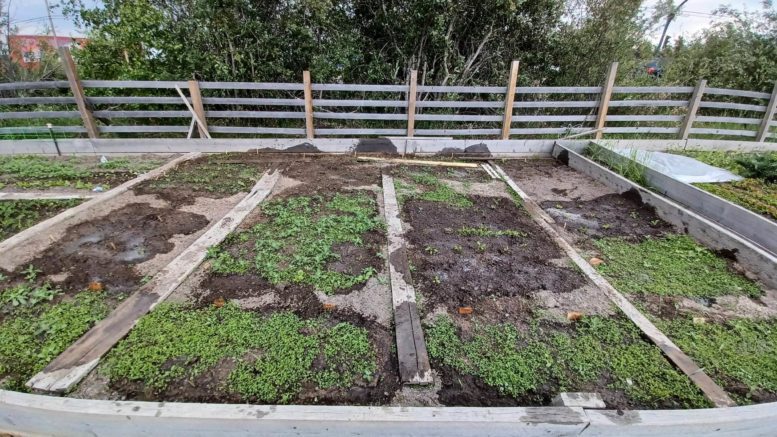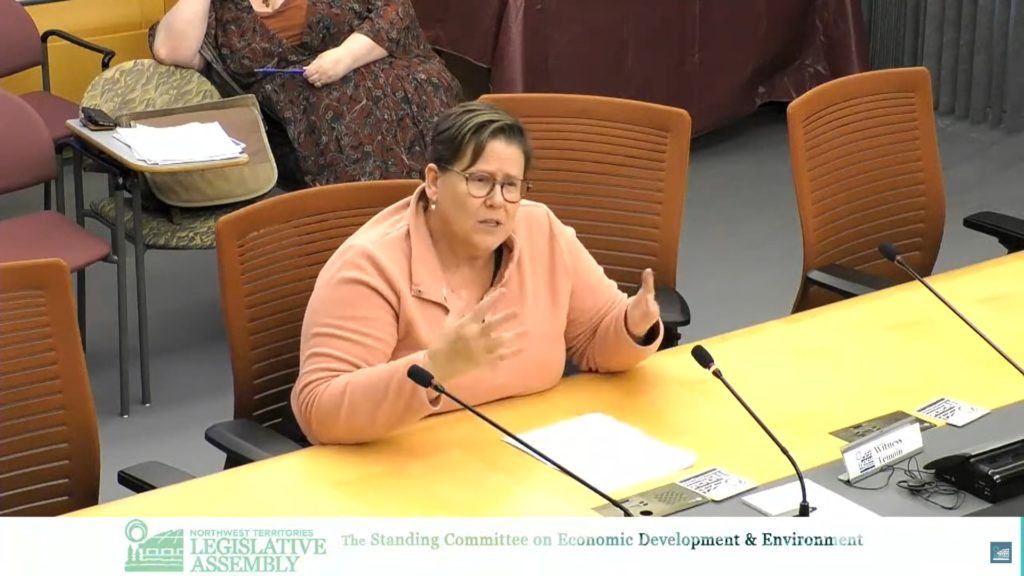Just do something, anything.
That was the message to a handful of MLAs during a committee meeting on food security held Wednesday night.
Presenters handed MLAs a menu of solutions: school food programs, funding for food vouchers in communities, more support for harvesters, reducing the operational costs for producers, trade agreements, even a universal basic income. Suffice to say, there is no shortage of solutions to food shortage in the North.
France Benoit runs Le Refuge farm near Yellowknife and is one of the founders of the Yellowknife Farmers’ Market.
She set the tone early for the meeting, saying, “Food security is not a food issue. It’s a money problem. We waste 40 to 60 per cent of our food at all stages from in the field, to the distribution centre, to transportation, to the grocery store to our fridges. So there is food there is plenty of food. The sad part is that many people cannot afford to buy the food.”
She then proposed the territorial government look into a universal basic income for residents.
Production costs and climate change
Benoit also wants to incentivize local food production as a response to climate change.
“I do not think that my food is going to be coming from BC. and California for much longer,” she said. ” If we do not support land and water for food, in the Northwest Territories, somebody else will come and do it for us, and we’re not necessarily going to like the consequences.”
But climate change is also affecting local producers.
Alex McMeekin, owner of Riverside Growers in Hay River, said they’re looking to move after last year’s flood.
“We’re at a very pivotal moment in our business,” he said. “We’re looking at tearing everything down and relocating to a new location out of the floodplain… the floods that we saw this year were extremely devastating to the business.”
McMeekin also brought up high power rates and transportation costs in the NWT as a major barrier to producers.
“We absorb what we can, but it does get passed on to the consumer,” he said. “We’re left trying to be competitive against markets from Alberta, BC, California, and they’re producing it at much cheaper rates and able to transport it at cheaper rates.”
Immediate support
Katlià Lafferty told MLAs the lack of food security is a direct result of an ongoing colonial system.
She called for more immediate funding from the GNWT for Indigenous nonprofits to provide food vouchers to community members, a territory-wide food program in school, and more support for harvesters.
“Many Indigenous residents in housing are unable to afford groceries. After paying the rent and their utility bills, they rely on family and friends to provide traditional foods or else they literally are going hungry. Harvesting programs need to be supplemented seasonally across the North as an Aboriginal right,” she said.
The goal, she said, is to have Indigenous communities achieve food sovereignty.
Having statistics around food production would help assess the effectiveness of some of the programs already in place, said MLA Kevin O’Reilly.
Janet Dean, executive director of the Territorial Agrifood Association, said the organization would be willing to undertake the work, but that it expects “actionable results.”
“We don’t want to hear in a year that we’re all happy that we’re doing something about food security, we want to see something done about food security,” she said.
One way to make that happen, she said, was to follow PEI and have specific targets towards reducing food insecurity.
With only a few months left in their term, MLAs will now need to decide where to focus their efforts to make that happen.






